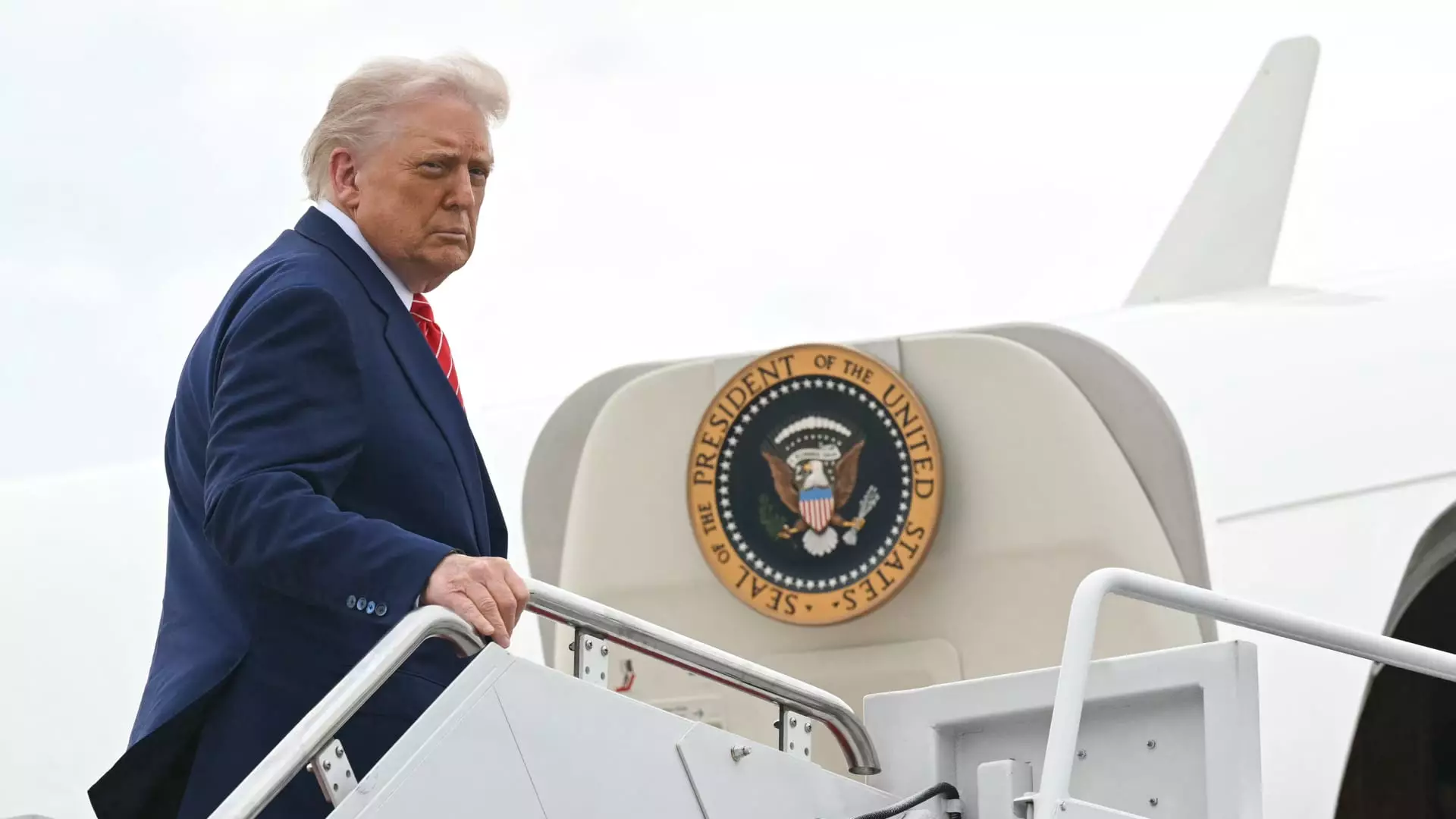As the legal battles surrounding President Trump’s tariffs unfold, one thing remains clear: the economic strategy rooted in protectionism isn’t fading into the background anytime soon. Despite a federal court ruling that deemed the imposition of extensive tariffs as an overreach of presidential authority, Trump’s inner circle, including Commerce Secretary Howard Lutnick and National Economic Council Director Kevin Hassett, insist that these tariffs are here to stay. The confidence expressed by Trump’s advisers is a testament to the contentious climate surrounding tariffs and their significant impact on both domestic and global markets.
The recent judicial ruling has thrown a wrench into the administration’s plans, establishing an uncertain legal framework that could ultimately make its way to the Supreme Court. Yet, as the White House stands firm, the implications of continuing a tariff-heavy approach are vast and potentially detrimental for countless American consumers and businesses. The stubborn continuation of these tariffs reflects a deeper ideological commitment to prioritizing national trade interests, even at the risk of discomfort in international relations.
The Legal Quagmire of Tariff Implementation
Recent events highlight a critical juncture: a federal court ruling that unexpectedly blocked Trump’s tariffs. The basis for this ruling lies in the interpretation of the International Emergency Economic Powers Act (IEEPA), which failed to provide the broad authority needed for the sweeping tariffs levied by Trump. On one hand, Trump and his supporters argue that these tariffs protect American jobs and industries from unfair foreign competition. On the other hand, this unilateral move raises profound questions about the role of judicial oversight and the boundaries of executive power.
The juxtaposition of Trump’s staunch belief in the necessity of these tariffs against a potentially dwindling legal foundation offers insight into a broader ideological conflict. Proponents of the tariffs claim they are vital for national security and economic fairness. However, such an aggressive stance risks creating friction with trade partners and allies, who may respond with retaliatory measures. This tit-for-tat dynamic can spiral into a broader trade war that could economically devastate regions reliant on global trade.
Plan A, Plan B, and the Shadow of Economic Ruin
The unwavering belief of Trump’s economic advisers in their legal standing emphasizes a lack of foresight regarding the unpredictable nature of judicial processes. While Kevin Hassett’s optimistic assertions may sound reassuring, they gloss over the inherent risks involved in a drawn-out legal fight. There remains a distinct possibility that the Supreme Court may not support Trump’s tariff policies merely because the Justices lean conservative; the complexities of this case could sway their decisions in unexpected directions.
Furthermore, while Hassett hints at alternative pathways for pursuing tariffs, his reluctance to disclose specific plans raises a red flag. Indeed, the very idea that there could be “other alternatives” is worrisome, suggesting an administration potentially interested in circumventing established legal frameworks. This not only raises ethical concerns but also reflects a cavalier attitude towards checks and balances, an essential tenet of American governance.
Moreover, Trump’s use of hyperbolic language—characterizing a future ruling against tariffs as leading to the “economic ruination of the United States”—is indicative of a more profound strategy aimed at rallying a base fearful of globalization. This approach not only stokes domestic anxiety but also undermines the necessary diplomatic engagements that can help defuse international trade tensions.
The Overarching Consequences of Protectionism
As we observe the administration’s persistent defense of tariffs, it becomes increasingly vital to consider the broader socio-economic consequences. Tariffs ultimately raise prices for consumers and could inhibit economic growth, particularly for small businesses lacking the resources to absorb increased costs. The real victims of these policies aren’t just the corporations embroiled in trade negotiations; it’s the average American who faces higher prices for imported goods.
In an era of globalization, where international trade has become a cornerstone of economic vitality, the administration’s fixation on protectionism threatens to alienate trade partners and weaken potential alliances. The belief that tariffs can serve as a safeguard against foreign competition reflects a narrow view of economic interdependence. Instead, collaboration in the global marketplace typically fosters innovation, efficiency, and ultimately, growth—something that becomes jeopardized in a hostile trade environment.
Ultimately, the administration’s tariffs serve as both a reflection of ideological values and a precarious gamble with potentially heartbreaking consequences for many Americans. The certainty expressed by Trump’s economic advisers, though emphatic, cannot mask the uncertainty of global trade dynamics and the intricate legal landscape that surrounds these policies. As the situation continues to develop, it is essential to navigate these economic waters with a more nuanced understanding of the complex interplay between protectionism and international collaboration.

Leave a Reply